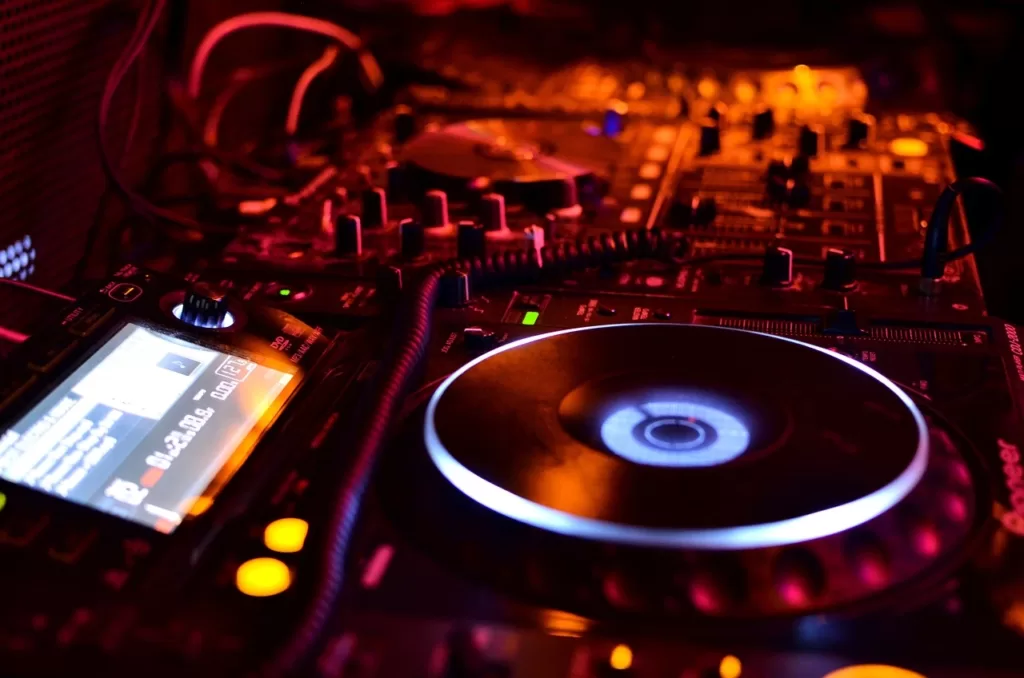In the realm of music production, the DJ mixer emerges as a crucial tool that shapes the sonic landscape. This article delves into the significance of mastering mixing techniques using a DJ mixer, exploring the depths of audio manipulation and creativity that it offers.
I. Introduction
The foundation of captivating music lies not just in the composition, but also in the art of audio mixing. DJs and music producers alike understand the pivotal role that a DJ mixer plays in the modern music landscape. This article unravels the multifaceted dimensions of audio mixing and its impact on music production.
Table of Contents
II. Understanding Audio Mixing
A. Definition and Importance
Audio mixing is the process of blending individual audio tracks to create a harmonious and well-balanced musical composition. It involves adjusting various elements such as volume, panning, and effects to craft an immersive auditory experience.
B. Basics of DJ Mixers
DJ mixers are specialized equipment that allow DJs and producers to manipulate and blend audio tracks seamlessly. They provide control over volume, EQ, effects, and transitions, enabling the creation of unique soundscapes.
C. Essential Features of DJ Mixers
Modern DJ mixers boast a range of features, including multiple channels, crossfaders, EQ controls, and effects processors. These features empower artists to craft dynamic mixes and experiment with different audio textures.
III. Exploring Advanced Mixing Techniques
A. Balancing Audio Elements
Achieving a balanced mix is fundamental to a pleasing auditory experience. DJs and producers use the DJ mixer to ensure that no individual element overpowers the others, creating a cohesive and harmonious sound.
B. Utilizing Equalization (EQ) Effectively
EQ is a powerful tool for shaping the tonal quality of individual tracks. DJ mixers provide precise control over frequency ranges, allowing for the enhancement of clarity and separation within the mix.
C. Applying Effects and Filters
Creative effects and filters add depth and character to mixes. The DJ mixer facilitates the integration of effects such as reverb, delay, and filters, enabling artists to infuse their mixes with unique sonic textures.
D. Achieving Seamless Transitions
Seamless transitions between tracks are a hallmark of skilled DJs. DJ mixers offer crossfaders and cueing options that enable smooth transitions, elevating the energy of live performances and mix recordings.
IV. Developing Audio Mixing Skills
A. Ear Training and Critical Listening
The foundation of proficient mixing lies in developing a keen ear and honing critical listening skills. DJs and producers use the DJ mixer to analyze tracks, identify sonic nuances, and make informed mixing decisions.
B. Practicing with Virtual DJ Mixers
Virtual DJ mixers and software platforms provide an accessible way to practice and refine mixing techniques. Aspiring DJs can experiment with virtual setups before transitioning to physical equipment.
C. Real-time Mixing Workshops and Courses
Real-time mixing workshops and online courses offer immersive learning experiences. Participants can engage with expert instructors, receive personalized feedback, and refine their mixing prowess using DJ mixers.
V. DJ Mixer in Music Production
A. Incorporating Mixed Tracks in Productions
Mixed tracks can serve as valuable components in larger music productions. DJs and producers can integrate these mixes to add layers of depth and complexity to their creations.
B. Enhancing Creativity through Remixing
Remixing is an art form that thrives on the capabilities of the DJ mixer. It allows artists to reinterpret existing tracks, infusing them with their own creative flair and style.
C. Integrating DJ Mixing in Electronic Music
Electronic music genres heavily rely on intricate mixing techniques. The DJ mixer becomes a palette for electronic music producers to craft intricate sonic journeys that captivate audiences.

VI. Digital Revolution in Mixing
A. Rise of Digital Mixers
The digital era has revolutionized audio mixing, giving rise to sophisticated digital mixers that offer unparalleled flexibility and control.
B. Integration of Software and Hardware
Modern DJ mixers often integrate software interfaces, enabling seamless control over digital audio workstations (DAWs). This fusion of software and hardware opens up new avenues for creative expression.
C. Pros and Cons of Digital Mixing
While digital mixing offers remarkable versatility, traditional analog mixers hold their own charm. DJs and producers choose based on their preference for tactile control or digital precision.
VII. Buying Guide for DJ Mixers
A. Considerations for Beginners
Aspiring DJs should prioritize user-friendly mixers with intuitive controls and limited complexity. This allows for a smooth learning curve while building fundamental mixing skills.
B. Features for Professional DJs
Experienced DJs require advanced features such as multiple channels, effects routing, and MIDI integration. High-quality audio converters and durable construction also become vital for professional setups.
C. Budget-Friendly Options
For those starting on a budget, entry-level DJ mixers offer essential functionalities without overwhelming complexity. These mixers serve as a solid foundation for skill development.
VIII. Maintaining and Upgrading Equipment
A. Cleaning and Care Tips
Proper maintenance ensures the longevity of DJ mixers. Regular cleaning, dust protection, and safe storage contribute to equipment durability.
B. Upgrading to Advanced Mixers
As skills progress, DJs might consider upgrading to more advanced mixers with additional features. This enhances their creative potential and accommodates evolving mixing preferences.
C. Extending Equipment Lifespan
DJ mixers are investments that can last for years with proper care. Keeping up with firmware updates and following manufacturer guidelines prolongs equipment lifespan.
IX. FAQs (Frequently Asked Questions)
- What is the purpose of a DJ mixer? A DJ mixer allows DJs and producers to blend and manipulate audio tracks to create seamless and captivating mixes.
- How do I create smooth transitions between tracks? Smooth transitions involve using crossfaders and cue points to seamlessly shift between tracks, maintaining a consistent flow.
- What are the key features to look for in a DJ mixer? Essential features include multiple channels, EQ controls, effects processors, and intuitive crossfaders.
- Can I use DJ mixing techniques in live performances? Absolutely! DJ mixing techniques are essential for creating engaging live performances with continuous and dynamic mixes.
- Are digital mixers better than analog mixers? Both have their merits. Digital mixers offer advanced features, while analog mixers provide tactile control and a classic feel.
Conclusion
The DJ mixer has evolved into a versatile tool that empowers DJs and music producers to craft intricate soundscapes, blend tracks seamlessly, and experiment with innovative mixing techniques. As technology continues to advance, the art of audio mixing remains at the heart of captivating music production.

